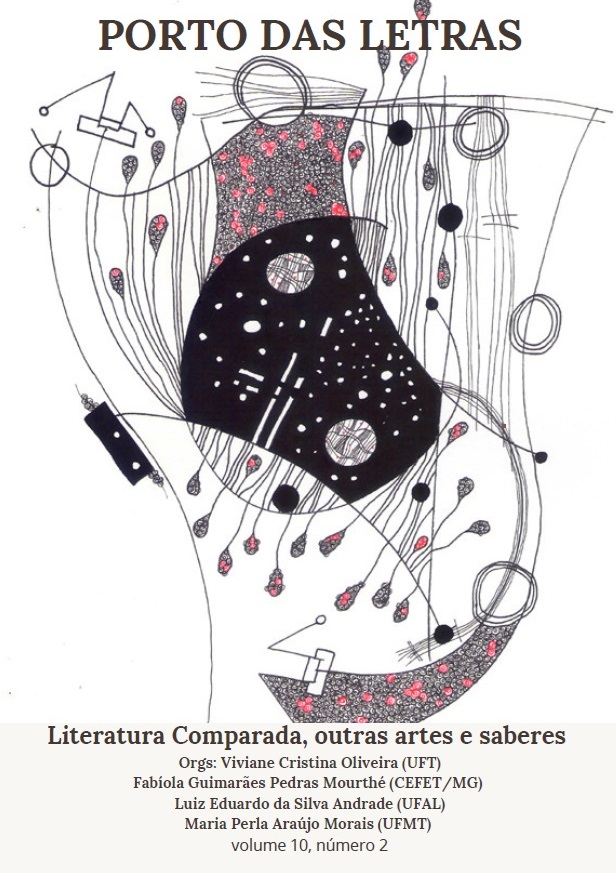O Filtro Ficcional
Como Videogames Desafiam os Paradigmas Tradicionais de Reconstrução Ficcional
DOI:
https://doi.org/10.20873.24221Resumo
Este artigo discute o conceito de ficção em relação às artes representativas e defende que os videogames articulam uma nova convenção de reconstrução ficcional, diferente das convenções paradigmáticas empregadas em formas de arte mais tradicionais. Começamos por pensar o conceito de ficção como este é elaborado, primeiramente, por autores como Searle (1975), Ryan (1980) e Iser (1993) em relação à arte da literatura; e, posteriormente, por autores como Walton (1990), Juul (2005, 2014) e Thon (2016) em relação à arte dos videogames. Em seguida, propomos o conceito de “filtro ficcional” para designar uma competência interpretativa desenvolvida por jogadores no seu processo de letramento com jogos, a qual condiciona como mundos ficcionais devem ser reconstruídos a partir da representação semiótica apresentada por um videogame. Por fim, argumentamos a favor da validade de nosso conceito empregando-o na análise de três jogos historicamente separados, mas similares em gênero: Deus Ex (ION STORM, 2000), Fallout: New Vegas (OBSIDIAN ENTERTAINMENT, 2010) e Disco Elysium (ZA/UM, 2021). Fomos capazes de concluir que o conceito de filtro ficcional pode ser uma ferramenta útil para descrever e discutir as peculiaridades poéticas e estéticas da arte dos videogames.
Palavras-chave: ficção; videogames; mundos ficcionais; filtro ficcional.
Referências
BACKE, H.-J. “Deathloop”: the meta(modern) immersive simulation game. Game Studies. Vol. 22, N. 2, 2022. Retrieved from: https://gamestudies.org/2202/articles/gap_backe. Access: 11 mar. 2023.
CAILLOIS, R. Man, play and games. Translated by Meyer Barash. Urbana: University of Illinois Press, 2001.
CALVINO, I. If on a winter’s night a traveler. Translated by William Weaver. Orlando: Harvest Books, 1982.
FRASCA, G. Videogames of the oppressed: videogames as a means for critical thinking and debate. Thesis (Masters in Information Design and Technology) – School of Literature, Communication and Culture, Georgia Institute of Technology. Georgia, 128 p. 2001.
GALLOWAY, A. R. Gaming: essays on algorithmic culture. Minneapolis: University of Minnesota Press, 2006.
GENETTE, G. Narrative discourse: an essay in method. Translated by Jane E. Lewin. Ithaca: Cornell University Press, 1980.
HUIZINGA, J. Homo ludens: a study of the play-element in culture. London: Routledge & Kegan Paul, 1949.
INSOMNIAC GAMES. Spider-Man. [S.l.]: Sony Interactive Entertainment, 2018. Videogame.
ION STORM. Deus Ex. [S.l.]: Eidos Interactive, 2000. Videogame.
ISER, W. The fictive and the imaginary: charting literary anthropology. Baltimore: The Johns Hopkins University Press, 1993.
JUUL, J. Half-real: videogames between real rules and fictional worlds. Cambridge, Massachusetts: The MIT Press, 2005.
JUUL, J. On absent carrot sticks: the level of abstraction in video games. In: RYAN, M.-L.; THON, J.-N. (Eds.) Storyworlds across media: toward a media-conscious narratology. Lincoln: University of Nebraska Press, 2014.
NAUGHTY DOG. The Last of Us. [S.l.]: Sony Interactive Entertainment, 2013. Videogame.
OBSIDIAN ENTERTAINMENT. Fallout: New Vegas. [S.l.]: Bethesda Softworks, 2010. Videogame.
RYAN, M.-L. Fiction, non-factuals, and the principle of minimal departure. Poetics. Vol. 9, p. 403-422, 1980.
SALEN, K.; ZIMMERMAN, E. Rules of play: game design fundamentals. Cambridge, Massachusetts: The MIT Press, 2004.
SEARLE, J. R. The logical status of fictional discourse. New Literary History. Vol. 6, N. 2, p. 319-332, 1975.
THON, J.- N. Transmedial narratology and contemporary media culture. Lincoln: University of Nebraska Press, 2016.
WALSH, R. Fictionality and mimesis: between narrativity and fictional worlds. Narrative. Vol. 11, N. 1, p. 110-121, 2003.
WALTON, K. L. Mimesis as make-believe: on the foundations of the representational arts. Cambridge, Massachusetts: Harvard University Press, 1990.
ZA/UM. Disco Elysium. [S.l.]: ZA/UM, 2021. Videogame.
Downloads
Publicado
Como Citar
Edição
Seção
Licença
Os autores concordam com os termos da Declaração de Direito Autoral, que se aplicará a esta submissão caso seja publicada nesta revista (comentários ao editor podem ser incluídos a seguir).




